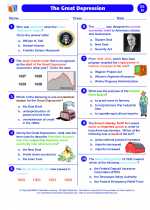What led to Black Tuesday?
Several factors contributed to the stock market crash, including over-speculation, excessive borrowing to buy stocks, and a lack of government regulation in the financial markets. Additionally, the agricultural and industrial sectors were already struggling, leading to decreased consumer spending and investment.
Impact of Black Tuesday
The crash had a profound impact on the economy, leading to widespread unemployment, bank failures, and a significant decline in industrial production. Many people lost their life savings and were unable to afford basic necessities. The Great Depression that followed had a lasting impact on the United States and the global economy.
Government Response
In response to the economic crisis, the U.S. government implemented various policies and programs, including the New Deal, which aimed to provide relief, recovery, and reform. President Franklin D. Roosevelt's administration introduced measures to stabilize the banking system, create jobs, and regulate financial markets to prevent future crises.
Legacy of Black Tuesday
The stock market crash and the subsequent Great Depression reshaped the role of government in the economy and led to the implementation of new regulations to prevent similar financial disasters. The lessons learned from this period continue to influence economic policy and financial regulations to this day.
[Black Tuesday] Related Worksheets and Study Guides:
.◂Social Studies Worksheets and Study Guides Eighth Grade. The Great Depression
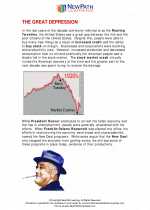
 Worksheet/Answer key
Worksheet/Answer key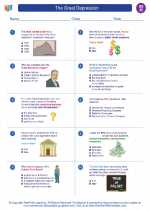
 Worksheet/Answer key
Worksheet/Answer key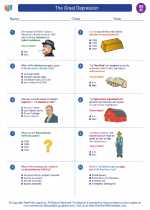
 Worksheet/Answer key
Worksheet/Answer key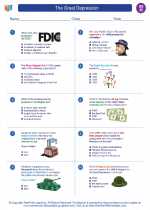
 Worksheet/Answer key
Worksheet/Answer key